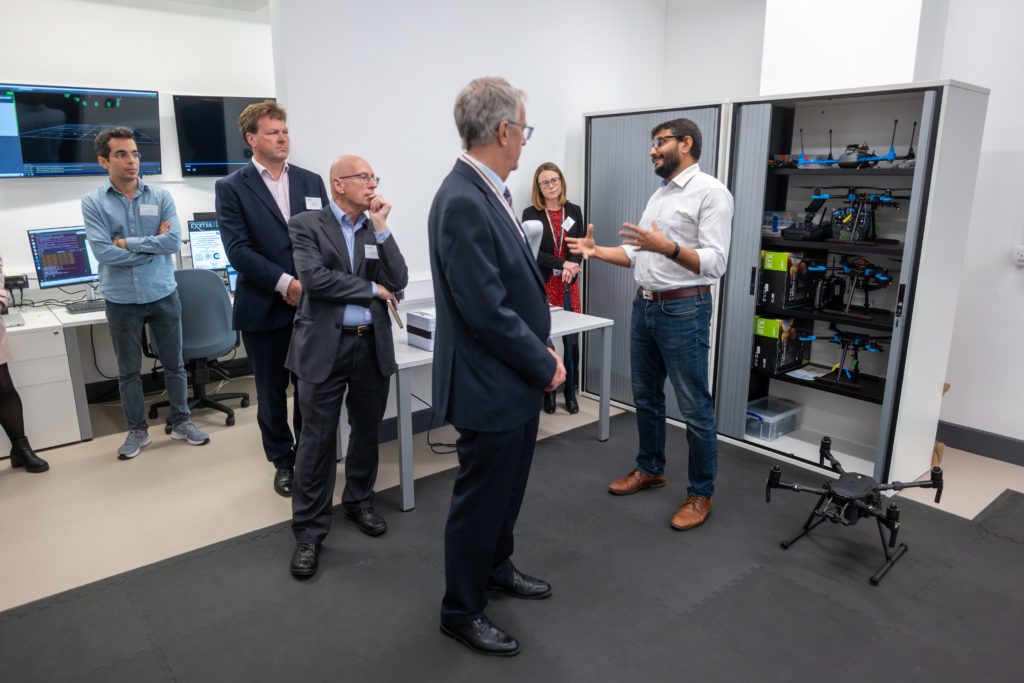Description:
Cooperative Robotics and Autonomous Networks (CRANE) lab at CFCM has significant experience developing robust and adaptive control and monitoring schemes, embedding autonomous behaviours and mission planning of unmanned systems in land, air, and water. Our research enhances the operational performance and resilience of conventional and autonomous mobile assets in the presence of uncertainties, disturbances, and failures.
Our capacity to develop cooperation among unmanned systems, infrastructures and humans allows collating vital information over the field and exploit it for beer, faster and more reliable decision-making.
In addition to developing rigorous theoretical concepts, we implement these novel methods on experimental and third party-owned platforms on land, air and sea.
The lab has an excellent track record of balanced Industrial and UKRI funding and developing fundamental and practical high-impact research in control, autonomy, and optimisation.


